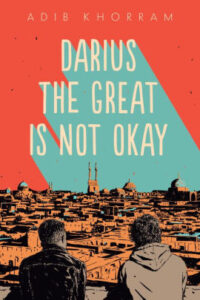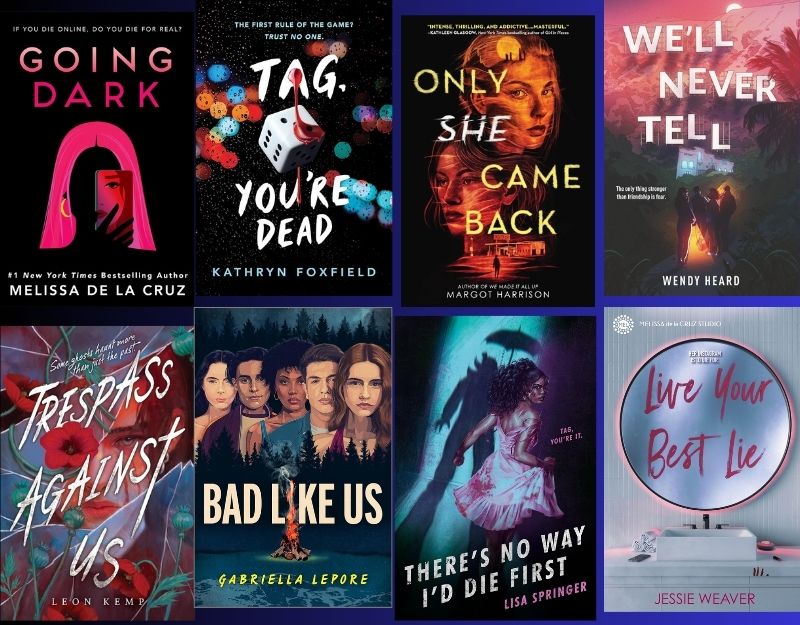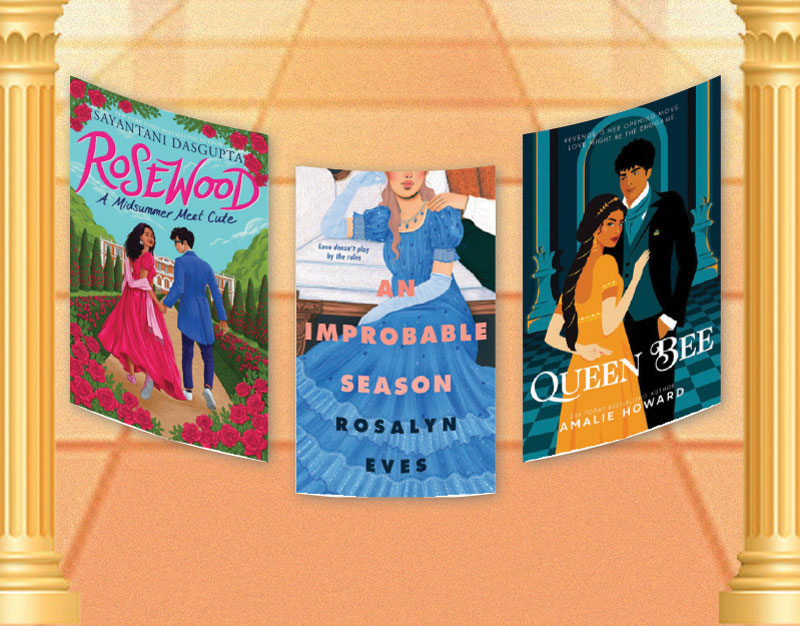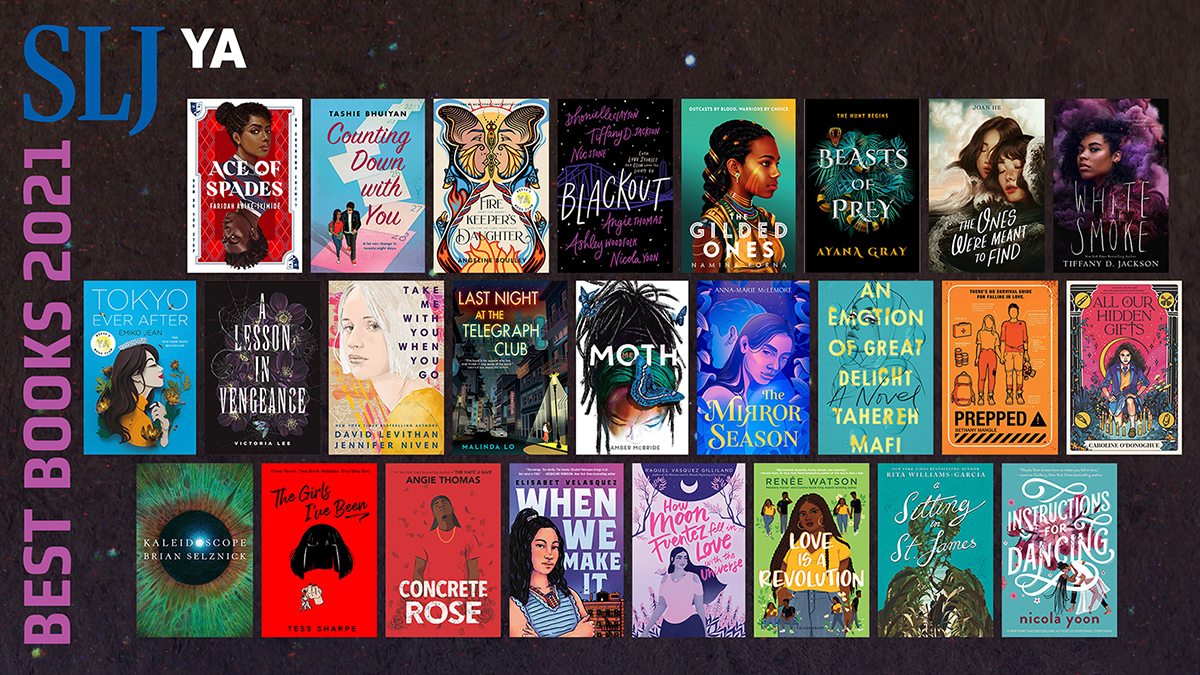Book Review: Darius the Great Is Not Okay by Adib Khorram
Publisher’s description
 Darius doesn’t think he’ll ever be enough, in America or in Iran. Hilarious and heartbreaking, this unforgettable debut introduces a brilliant new voice in contemporary YA.Darius Kellner speaks better Klingon than Farsi, and he knows more about Hobbit social cues than Persian ones. He’s a Fractional Persian—half, his mom’s side—and his first-ever trip to Iran is about to change his life.Darius has never really fit in at home, and he’s sure things are going to be the same in Iran. His clinical depression doesn’t exactly help matters, and trying to explain his medication to his grandparents only makes things harder. Then Darius meets Sohrab, the boy next door, and everything changes. Soon, they’re spending their days together, playing soccer, eating faludeh, and talking for hours on a secret rooftop overlooking the city’s skyline. Sohrab calls him Darioush—the original Persian version of his name—and Darius has never felt more like himself than he does now that he’s Darioush to Sohrab.Adib Khorram’s brilliant debut is for anyone who’s ever felt not good enough—then met a friend who makes them feel so much better than okay.
Darius doesn’t think he’ll ever be enough, in America or in Iran. Hilarious and heartbreaking, this unforgettable debut introduces a brilliant new voice in contemporary YA.Darius Kellner speaks better Klingon than Farsi, and he knows more about Hobbit social cues than Persian ones. He’s a Fractional Persian—half, his mom’s side—and his first-ever trip to Iran is about to change his life.Darius has never really fit in at home, and he’s sure things are going to be the same in Iran. His clinical depression doesn’t exactly help matters, and trying to explain his medication to his grandparents only makes things harder. Then Darius meets Sohrab, the boy next door, and everything changes. Soon, they’re spending their days together, playing soccer, eating faludeh, and talking for hours on a secret rooftop overlooking the city’s skyline. Sohrab calls him Darioush—the original Persian version of his name—and Darius has never felt more like himself than he does now that he’s Darioush to Sohrab.Adib Khorram’s brilliant debut is for anyone who’s ever felt not good enough—then met a friend who makes them feel so much better than okay.
Amanda’s thoughts
 I’ve been in a reading slump for what feels like forever, abandoning at least half a dozen books before I can settle in and actually read one. But this book? This book, I burned through in two sittings—and would’ve read it in one, had I not been expected to do things like parent my child. In fact, when I was reading this on the second day, I got so engrossed that I didn’t even look up for the duration of reading, not noticing how my dachshunds arranged themselves in this adorable heap and passed out next to me. Given that I usually look at them about every 30 seconds and exclaim how cute they are, this is an impressive level of reading engagement.
I’ve been in a reading slump for what feels like forever, abandoning at least half a dozen books before I can settle in and actually read one. But this book? This book, I burned through in two sittings—and would’ve read it in one, had I not been expected to do things like parent my child. In fact, when I was reading this on the second day, I got so engrossed that I didn’t even look up for the duration of reading, not noticing how my dachshunds arranged themselves in this adorable heap and passed out next to me. Given that I usually look at them about every 30 seconds and exclaim how cute they are, this is an impressive level of reading engagement.
Darius is a Persian American sophomore living in Portland, Oregon. He works in a tea shop, is bullied at school, has depression, and often feels like an outsider even in his own family. Those are all the traits/facts that seem to define him while at home. His younger sister is fluent in Farsi, but Darius only knows food words and a few other common words and phrases. His blond-haired, blue-eyed father always seems disappointed in him, and they have trouble connecting, relying on nightly episodes of Star Trek to be the quality time they spend together. Like Darius, his father has depression, but Darius feels his dad is ashamed of this fact. He thinks Darius wouldn’t be bullied so much if he would just act more normal. When Darius’s mother tells him their family will be going to Iran to visit the dying grandfather he’s never met, Darius figures it will just be another place that he doesn’t fit in or feel comfortable. While he’s Skyped with his grandparents and other relatives plenty, he’s never met them. As noted before, he doesn’t speak much Farsi, which he knows will isolate him further. To his surprise, it is in Yazd, his mother’s hometown, where he begins to feel comfortable and to open himself up for the first time in his life.
Though Darius is often awkward and monosyllabic, we get to know him much better when he is in Iran. Darius gets to know himself much better during this time. He becomes friends with Sohrab, a charismatic neighbor boy who draws Darius out of his shell, inviting him to play soccer and helping guide him through life in Yazd. Fairly quickly, Darius feels such closeness with Sohrab, feeling like they really understand each other. Sohrab is easy and comfortable with Darius, so open and affectionate. Though it is never discussed, it is easy to read their relationship as something more than friends, or something that could potentially be more than friends. Though their time together is short, Sohrab and his friendship appear to be life changing for Darius, showing him that he can connect with other people and that there is more to him than just a bullied kid who is always the object of jokes and cruelty.
The book has a lot of other things going for it. Darius’s depression is handled well. It’s noted over and over that he has been encouraged to not feel embarrassed or ashamed for having depression, that it’s just the way his brain chemicals work. He talks about being medicated for years, about having tried various medications, about side effects, like weight gain, and we routinely see him take his medication. His mother talks to him about the fact that her parents will have a different, less understanding attitude toward depression, which does come up once they are in Iran. It is refreshing to see mental illness depicted in such a matter of fact manner—it’s just one part of Darius. Darius also helps guide readers through Persian culture by explaining cultural ideas, tradition, and Farsi words as the story unfolds. Khorram manages to make this feel like part of the natural flow of the narrative. This quiet story will resonate with readers who feel they don’t fit in, for whatever reason, and can appreciate the profoundness of finally feeling like you can connect with someone. A heartfelt, complicated, and thoughtful look at identity, family, and unexpected connections set in a place, and within a culture, we rarely see in YA. A great addition for all collections.
Review copy courtesy of the publisher
ISBN-13: 9780525552963
Publisher: Penguin Young Readers Group
Publication date: 08/28/2018
Publisher: Penguin Young Readers Group
Publication date: 08/28/2018
Filed under: Book Reviews
#MHYALitBook reviewsDepressionFamiliesFriendshipGrandparentsIranMental Health in YA LiteraturePersian Americans
About Amanda MacGregor
Amanda MacGregor works in an elementary library, loves dogs, and can be found on Twitter @CiteSomething.
ADVERTISEMENT
ADVERTISEMENT
SLJ Blog Network
100 Scope Notes
Top 10 Posts of 2024: #1
A Fuse #8 Production
Get an Inside Peek! An Excerpt from Remy Lai’s Chickenpox
Good Comics for Kids
Mack Moon And The P.E.T.S. | This Week’s Comics
Politics in Practice
When Book Bans are a Form of Discrimination, What is the Path to Justice?
ADVERTISEMENT






